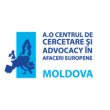Achiziții de bunuri și contractări de servicii
- Detalii
- Categorie: Achiziție bunuri, Contractare Servicii
Final Evaluation of the Project
Informațiile prezentate în articolul de mai jos pot să nu mai fie actuale sau să nu mai reflecte activitățile și programele curente. Anunțul este păstrat în arhivă pentru a asigura transparența și accesul public la informațiile despre inițiativele și proiectele implementate anterior.
Project Title: Make Food, Make Sense! Improving the nutritional situation for a healthy diet for 1,000 children in rural areas of the Republic of Moldova
Project Number: BMZ24-05
1. Background and rationale
The project Make Food, Make Sense! is implemented by Katalyst and focuses on promoting a healthy and sustainable diet among school-aged children through an integrated approach combining nutrition education, school-community engagement, and support for local food systems.
Over the course of implementation, the project has targeted five educational institutions across various regions of Moldova, namely Drochia, Florești, Chișinău, Oliscani, and Rîșcova. Through practical cooking sessions, educational workshops, participatory learning activities, and the establishment of school food procurement practices linked to local farmers, the project has aimed to:
- Offer children regionally grown and healthy meals in the school context (project objective)
- Improve agroecological and marketing skills of 15 local farmer cluster for improved access to the sales market (output 1)
- Improve children’s knowledge and behavior regarding healthy eating (output 2)
- Support school canteen staff and teachers in delivering integrated food education (output 2)
- Foster systemic change through policy dialogue and awareness-raising campaigns (output 3 and 4)
Key stakeholders of the project:
- Teachers, school managers, and canteen staff in 5 project schools
- Local farmers of 5 producer clusters and community stakeholders
- Policy-makers in the education and agriculture sectors
As the project nears completion, a final external evaluation is required to assess its outcomes, effectiveness, relevance, efficiency, sustainability, and the lessons learned in order to inform future initiatives and policy-level advocacy.
2. Purpose, objectives and use
The main purpose of this final external evaluation is to assess the overall performance and outcomes of the project Make Food, Make Sense! and to generate insights that will inform future programming and decision-making by Katalyst and its partners, as well as donors and stakeholders involved in food systems, child nutrition, and educational development.
Objectives:
- Assess of project activities and outputs against defined objectives, outcomes and indicatorsExamine the degree to which project activities (e.g., cooking sessions, nutrition workshops, educational material development, school procurement engagement) contributed to improved nutritional knowledge and practices among children, educators, and families
- Identify strengths and limitations in the project’s design and implementation, including the appropriateness of its participatory and multi-stakeholder approach
- Highlight good practices, lessons learned, and areas for improvement that can be applied to future interventions
- Provide actionable recommendations for scaling, replication
Use of findings:
- Inform the final reporting to the BMZ donor, including evidence of impact and accountability
- Share lessons learned with project partners, school communities, and farmers
Evaluation results will also inform the project’s final dissemination event and advocacy strategy, particularly in relation to expanding school-based food system models and healthy eating campaigns.
3. Scope of work
The final evaluation will take place between July and November 2025. The evaluator is expected to attend and observe the final project conference scheduled for July/September 2025. The evaluation will cover all five implementation sites: Drochia, Florești, Chișinău, Oliscani and Rîșcova.
Evaluation criteria (OECD-DAC):
- Relevance: Was the project aligned with the needs of the target groups and national priorities?
- Effectiveness: To what extent were the planned outcomes and objectives achieved?
- Efficiency: Were resources used in a cost-effective and timely manner?
- Impact: What are the broader effects of the project on beneficiaries and institutions?
- Sustainability: Are the results likely to be maintained after project completion?
Methodology: Applicants must propose a clear and appropriate evaluation design and methodology. The methodology should outline a gender-responsive, participatory, and inclusive approach reflecting the diverse needs and perspectives of beneficiaries, particularly children, educators, and local stakeholders.
The proposed methodology should include:
- A mixed-methods approach integrating both quantitative and qualitative data collection and analysis
- Description of tools to be used (e.g., surveys, structured interviews, focus groups, participatory observation)
- Strategy for ensuring meaningful participation of marginalized groups, including rural children, canteen staff, and local farmers
- Techniques for data triangulation and validation to ensure reliability and accuracy
- Attention to ethical considerations, safeguarding of minors, and consent protocols
- Integration of gender equality and health equity lenses where possible
- Evaluation process
The evaluation will be conducted in four main phases. Each phase involves specific activities and the engagement of relevant stakeholders to ensure inclusiveness, transparency, and utility of findings.
- Inception phase: Desk review and refinement of evaluation tools.
- Data collection phase: Field visits, interviews, focus groups.
- Analysis and reporting phase: Drafting and validation of findings.
- Dissemination phase: Presentation to stakeholders and submission of the final report.
5. Outputs and deliverables
- Inception report including methodology, evaluation matrix (the evaluation criteria, assessment questions and the proposed tools), timeline and research tools
- Preliminary findings presentation (September 2025)
- Draft evaluation report (10 October 2025)
- Final evaluation report in English with a maximum of 30 pages, including the following chapters: Executive Summary; Introduction and Context; Methodology; Findings organized by evaluation criteria; Conclusions and Recommendations; Annexes (30 November 2025)
- PowerPoint presentation summarizing key findings and recommendations
6. Expertise profile of the evaluation team
Key requirements for evaluator:
- A relevant university degree in social sciences, education, or a related field;
- Minimum 3 years of experience in external evaluations of development projects;
- Solid background in nutrition, education or food systems projects;
- Proven ability to apply participatory and gender-sensitive approaches in complex, multi-stakeholder settings;
- Experience with mixed-methods evaluations, including data collection, analysis and visualization;
- Demonstrated understanding of school-based interventions and community-based development;
- Strong analytical and report-writing skills, with the ability to produce actionable findings;
- Fluency in English and Romanian (written and spoken) is mandatory.
7. Tentative timetable
The final evaluation of the project “Make Food, Make Sense!” will follow the below indicative timeline:
| Milestone | Date |
| Selection of evaluator | 21 July 2025 |
| Inception phase (incl. final conference participation) | From 25 July 2025 |
| Fieldwork and data collection | Starting 5 August 2025 |
| Submission of draft evaluation report | 10 October 2025 |
| Submission of final evaluation report | 30 November 2025 |
Throughout this period, the evaluator will maintain close coordination with the Katalyst team, ensuring stakeholder participation and timely delivery of all required outputs. All communication with the project team and stakeholders will be conducted in English; communication with beneficiaries will be in Romanian. Deliverables will be written in English.
- Application Process
Financial Offer:
- Include gross amount per activity/deliverable according to the Terms of Reference;
- Total budget expressed in MDL, brutto amount.
Technical Offer:
- Cover letter;
- CV;
- Description of the methodology/approach used in fulfilling the scope;
- Description of the activities and implementation schedule.
Submission: Proposals must be submitted via email to: procurements@katalyst.md, with cc to: violetta@katalyst.md with the subject: “Final evaluation BMZ24-05”.
Deadline for submission: 13 July 2025. Please note that applications received after the deadline, as well as incomplete ones, will not be considered.









